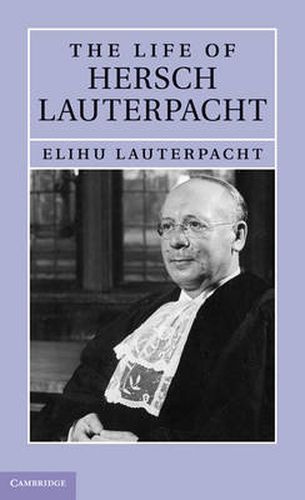Readings Newsletter
Become a Readings Member to make your shopping experience even easier.
Sign in or sign up for free!
You’re not far away from qualifying for FREE standard shipping within Australia
You’ve qualified for FREE standard shipping within Australia
The cart is loading…






Hersch Lauterpacht, of whom this book is an intimate biography by his son, Elihu, was one of the most prolific and influential international lawyers of the first half of the twentieth century. Having come to England from Austria in the early 1920s, he first researched and taught at the London School of Economics before moving to Cambridge in 1937 to become Whewell Professor of International Law. He did valuable work to enhance relations with the United States during the Second World War and was active after the war in the prosecution of William Joyce and the major Nazi war criminals. For ten years he was also involved in various significant items of professional work and in 1955 he was elected a judge of the International Court of Justice. The book contains many extracts from his correspondence, the interest of which will extend to lawyers, historians of the period and beyond.
$9.00 standard shipping within Australia
FREE standard shipping within Australia for orders over $100.00
Express & International shipping calculated at checkout
Hersch Lauterpacht, of whom this book is an intimate biography by his son, Elihu, was one of the most prolific and influential international lawyers of the first half of the twentieth century. Having come to England from Austria in the early 1920s, he first researched and taught at the London School of Economics before moving to Cambridge in 1937 to become Whewell Professor of International Law. He did valuable work to enhance relations with the United States during the Second World War and was active after the war in the prosecution of William Joyce and the major Nazi war criminals. For ten years he was also involved in various significant items of professional work and in 1955 he was elected a judge of the International Court of Justice. The book contains many extracts from his correspondence, the interest of which will extend to lawyers, historians of the period and beyond.